Sensor Sweep: Wizards of the Coast, D.C. Comics, Kull, Tolkien, Bradbury
Monday , 22, April 2024 Sensor Sweep Leave a commentSword & Sorcery (Echoes of Crom): Join me and co-host, Matthew Knight as we discuss the Elak of Atlantis tale “Dragon Moon” by Henry Kuttner. This is the story that inspired the Cauldron Born song, “Dragon Throne”.
Conan (Sprague de Camp Fan): “Hyborian Names” is an article by L.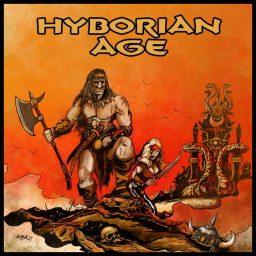 Sprague de Camp that appeared in Conan the Swordsman, Bantam Books, 1978. This was an expansion of earlier pieces published in various issues of the Robert E. Howard/Conan fanzine Amra. The first installment appeared in Amra V2, No. 4.
Sprague de Camp that appeared in Conan the Swordsman, Bantam Books, 1978. This was an expansion of earlier pieces published in various issues of the Robert E. Howard/Conan fanzine Amra. The first installment appeared in Amra V2, No. 4.
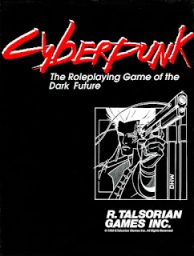 RPG (Grognardia): I’m fairly certain that 1988’s Cyberpunk, published by R. Talsorian Games, included a short bibliography of cyberpunk books that I would eventually find useful in much the same way as Appendix N had been for fantasy. Though I’d been a huge SF fan since I was quite young, most of my favorite stories and authors dealt with space travel, aliens, and galactic empires rather than more earthbound topics.
RPG (Grognardia): I’m fairly certain that 1988’s Cyberpunk, published by R. Talsorian Games, included a short bibliography of cyberpunk books that I would eventually find useful in much the same way as Appendix N had been for fantasy. Though I’d been a huge SF fan since I was quite young, most of my favorite stories and authors dealt with space travel, aliens, and galactic empires rather than more earthbound topics.
Science Fiction (M Porcius): In our last episode we read a story by Richard Matheson from the July 1957 issue of F&SF, and I noticed some other stories in the issue that interested me, so let’s check them out. “Your Ghost Will Walk…” by Robert F. Young This is a satire of suburban Americans who like TV and automobiles, as if we needed another of these.
Matheson from the July 1957 issue of F&SF, and I noticed some other stories in the issue that interested me, so let’s check them out. “Your Ghost Will Walk…” by Robert F. Young This is a satire of suburban Americans who like TV and automobiles, as if we needed another of these.
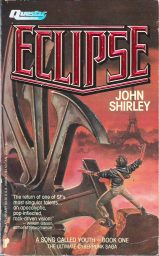 Review (Por Por Books): John Shirley (b. 1953) was an established novelist of science fiction and horror titles when, in 1985, he entered the genre of cyberpunk with his trilogy, ‘A Song Called Youth’, that consisted of the novels ‘Eclipse’ (1985), ‘Eclipse Penumbra’ (1987) and ‘Eclipse Corona’ (1990). All three books were issued in paperback by Questar. The Questar edition of ‘Eclipse’ (310 pp.) features cover art by Joe DeVito.
Review (Por Por Books): John Shirley (b. 1953) was an established novelist of science fiction and horror titles when, in 1985, he entered the genre of cyberpunk with his trilogy, ‘A Song Called Youth’, that consisted of the novels ‘Eclipse’ (1985), ‘Eclipse Penumbra’ (1987) and ‘Eclipse Corona’ (1990). All three books were issued in paperback by Questar. The Questar edition of ‘Eclipse’ (310 pp.) features cover art by Joe DeVito.
Gaming (Kairos): The tabletop role-playing scene was rocked yesterday by news that Wizards of the Coast president Cynthia Williams is stepping down. Wizards of the Coast president Cynthia Williams is leaving the company at the end of the month. An SEC filing disclosed that Cynthia Williams, the president of Wizards of the Coast and Hasbro Gaming, had informed Hasbro that she was leaving the company as of April 26th.
Comic Books (Fandom Pulse): The last several months have woken many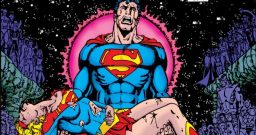 up to the comic industry’s problems. Retailer Glenn O’Leary blew the doors off of the problems in mainstream comic book content and their “self-insert” characters, which was roundly mocked by industry professionals who felt threatened and identified with his statement. This was followed up by journalist Heidi MacDonald, laying out figures that Marvel and DC Comics were in trouble. Now, buried in another article, it appears DC Comics is in even worse of a position than we’ve suspected.
up to the comic industry’s problems. Retailer Glenn O’Leary blew the doors off of the problems in mainstream comic book content and their “self-insert” characters, which was roundly mocked by industry professionals who felt threatened and identified with his statement. This was followed up by journalist Heidi MacDonald, laying out figures that Marvel and DC Comics were in trouble. Now, buried in another article, it appears DC Comics is in even worse of a position than we’ve suspected.
Science Fiction (John C. Wright): A man not named Little Platoon offers the most fascinating, in depth analysis of Frank Herbert’s DUNE and its relation to Asimov’s FOUNDATION, I have ever heard. To me it is utterly eye-opening. I found out more than I ever knew about Asimov and Herbert, perhaps more than I wanted to know. My dislike of DUNE MESSIAH, for example, is now explained to me.
Science Fiction (Dark Worlds Quarterly): Last time we looked at an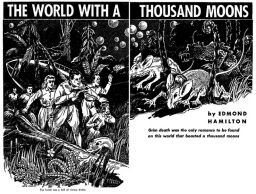 unusual tale from Henry Kuttner who didn’t write many space operas. This time it is Edmond Hamilton, who did quite a bit more than Hank. Ed wrote Science Fiction for Weird Tales in the 1920s and early 30s. Much of it was Wellsian in nature. In the 1940s, Ed used WT for his more experimental tales, many of which are classics in Hamilton’s career like “He That Hath Wings”.
unusual tale from Henry Kuttner who didn’t write many space operas. This time it is Edmond Hamilton, who did quite a bit more than Hank. Ed wrote Science Fiction for Weird Tales in the 1920s and early 30s. Much of it was Wellsian in nature. In the 1940s, Ed used WT for his more experimental tales, many of which are classics in Hamilton’s career like “He That Hath Wings”.
 Books (Pulse Books): This cinematic genre, also known as Sword & Sorcery, born out of after the success of John Milius’ Conan the Barbarian, takes Heroic Fantasy as its backdrop, but above all throws vengeful and muscular heroes into the mix. They’re often mute colossuses with a taste for personal justice, that they – more often than not delivered with a sword!
Books (Pulse Books): This cinematic genre, also known as Sword & Sorcery, born out of after the success of John Milius’ Conan the Barbarian, takes Heroic Fantasy as its backdrop, but above all throws vengeful and muscular heroes into the mix. They’re often mute colossuses with a taste for personal justice, that they – more often than not delivered with a sword!
Weird Western (Pulp Flakes): Lon T. Williams followed Robert E. Howard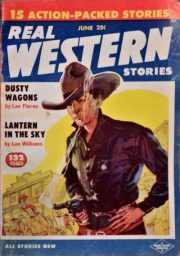 in writing weird westerns. Rather obscure, he was first republished by Larry Estep at pulpgen.com (which has now vanished into the aether). Williams’ stories of deputy sheriff Lee Winters, most of which appeared in Real Western Stories, are formulaic, with the hero encountering weirdness as he returns from successful pursuits of badmen.
in writing weird westerns. Rather obscure, he was first republished by Larry Estep at pulpgen.com (which has now vanished into the aether). Williams’ stories of deputy sheriff Lee Winters, most of which appeared in Real Western Stories, are formulaic, with the hero encountering weirdness as he returns from successful pursuits of badmen.
D&D (Grumpy Wizard): I don’t like elves, dwarves, and halflings in Dungeons & Dragons.
We all know the way they look and feel in D&D was lifted out of Lord of the Rings. The inclusion of elves, dwarves, hobbits, orcs, ents, and balrogs (don’t get me started on balrogs) into Dungeons & Dragons was a design mistake in my opinion.
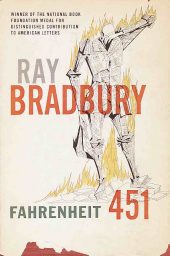 Science Fiction (Rip Jagger Dojo): We follow the fireman Montag, a man charged in this society with the destruction of illicit reading materials. What materials are considered verboten you might ask? All of them pretty much it seems. But mostly classic and popular literature, the kinds of fiction and nonfiction which lifts the individual out of their mundane existence and points the way to potentially more durable truths.
Science Fiction (Rip Jagger Dojo): We follow the fireman Montag, a man charged in this society with the destruction of illicit reading materials. What materials are considered verboten you might ask? All of them pretty much it seems. But mostly classic and popular literature, the kinds of fiction and nonfiction which lifts the individual out of their mundane existence and points the way to potentially more durable truths.
Pulp (Comic Radio): “The Planet That Time Forgot,” by Donald A. Wollheim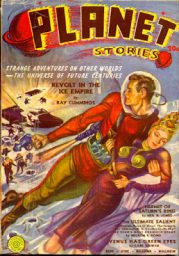 appeared in the Fall 1940 issue of Planet Stories.It’s set entirely on Planet P, a large newly discovered planet outside the orbit of Pluto. But there’s a human civilization on Planet P, despite what SHOULD be freezing cold temperature. The first half of the story is set amidst that civilization.
appeared in the Fall 1940 issue of Planet Stories.It’s set entirely on Planet P, a large newly discovered planet outside the orbit of Pluto. But there’s a human civilization on Planet P, despite what SHOULD be freezing cold temperature. The first half of the story is set amidst that civilization.
Radio (Paper-Dragon): “Again we bring you a story of Adventure with a man named Rocky Jordan, proprietor of the Cafe Tambourine which stands in a narrow street off of Cairo’s native quarter within sight of the Mosque Sultan Hassan, The Cafe Tambourine crowded with forgotten men from the world’s waterfront, alive with the babble of many languages.”
 Magazines (Twilight Zone Vortex): Special Issue: Twilight Zone: The Movie. Cover Art: Film image from the Twilight Zone: The Movie segment “Nightmare at 20,000 Feet,” with an inlaid image from the same segment of the film.
Magazines (Twilight Zone Vortex): Special Issue: Twilight Zone: The Movie. Cover Art: Film image from the Twilight Zone: The Movie segment “Nightmare at 20,000 Feet,” with an inlaid image from the same segment of the film.
Fiction (A Shiver in the Archives): In 2023, Jonathan R. Eller edited and published a thick volume Remembrance: Selected Correspondence of Ray Bradbury, which I’m just getting around to reading.* Not much on the Tolkien and C.S. Lewis front, but there is one interesting and relevant exchange.
published a thick volume Remembrance: Selected Correspondence of Ray Bradbury, which I’m just getting around to reading.* Not much on the Tolkien and C.S. Lewis front, but there is one interesting and relevant exchange.
 Tolkien (Tolkien & Fantasy): The fact that Richard Adams, author of Watership Down, was one of the first reviewers of The Silmarillion on its publication in 1977, seems to have long escaped Tolkienists, and Tolkien bibliographers. The review is not cited in Richard C. West’s impressive Tolkien Criticism: An Annotated Checklist (revised edition 1981), nor in Judith A. Johnson’s J.R.R. Tolkien: Six Decades of Criticism (1986), nor in a handful of subsequent resources that I casually checked.
Tolkien (Tolkien & Fantasy): The fact that Richard Adams, author of Watership Down, was one of the first reviewers of The Silmarillion on its publication in 1977, seems to have long escaped Tolkienists, and Tolkien bibliographers. The review is not cited in Richard C. West’s impressive Tolkien Criticism: An Annotated Checklist (revised edition 1981), nor in Judith A. Johnson’s J.R.R. Tolkien: Six Decades of Criticism (1986), nor in a handful of subsequent resources that I casually checked.
Pulp (Rough Edges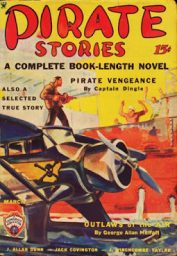 ): I don’t believe I’ve ever run across a mention of PIRATE STORIES before. It was a short-lived adventure pulp edited and published by Hugo Gernsback of AMAZING STORIES fame.
): I don’t believe I’ve ever run across a mention of PIRATE STORIES before. It was a short-lived adventure pulp edited and published by Hugo Gernsback of AMAZING STORIES fame.
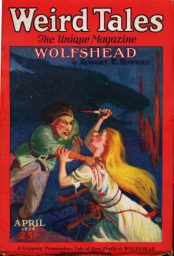 Robert E. Howard (Dark Worlds Quarterly): Conan vs. Werewolves is a problematic title. Conan as Robert E. Howard wrote him never met an actual werewolf. Howard wrote only six pieces that did involve lycanthropes. (He wrote more about shapechangers like the Serpent Men and the thing that came out of the ocean in “Out of the Deep”, but these aren’t even close to werewolves.) Only one of these six involves Conan the Cimmerian.
Robert E. Howard (Dark Worlds Quarterly): Conan vs. Werewolves is a problematic title. Conan as Robert E. Howard wrote him never met an actual werewolf. Howard wrote only six pieces that did involve lycanthropes. (He wrote more about shapechangers like the Serpent Men and the thing that came out of the ocean in “Out of the Deep”, but these aren’t even close to werewolves.) Only one of these six involves Conan the Cimmerian.
Comic Books (Yahoo Entertainment): Titan Comics and Heroic Signatures have earned great praise for their revival of Conan. The current Conan the Barbarian series is viewed by most as a worthy tribute to the legacy of Robert E. Howard. Now, the publisher has restored another of Howard’s most famous fantasy heroes to the comics page.
Michael Moorcock (Wandering DMs): Dan and Paul are thrilled to chat live with the master of fantasy, Michael Moorcock. What are his current thoughts on the legacy of his writing Elric, the Eternal Champion, critiques of Tolkien, and so much more?
H. P. Lovecraft/Games (Tentaclii): You wouldn’t know it from the description, but Compound Fracture, a mod for the original DOOM II videogame is claimed to be…my 10-map episode based on Nyarlathotep and Yog-Sothoth. The final boss is supposed to be Yog-Sothoth.
Warhammer (Sargon of Akkad): Warhammer Finally Goes Woke
Tolkien (Too Many Books): HarperCollins having announced today that The Collected Poems of J.R.R. Tolkien will be published this September, we’re able to speak publicly about our next book for the first time since an edition of Tolkien’s verse was suggested to us in HarperCollins’ offices in April 2016. The Tolkien Estate were eager to bring more of Tolkien’s unpublished poems into print, and Christopher Tolkien hoped that his father’s talent for poetry could become more widely known. We were sympathetic to both aims, and no strangers to Tolkien’s poems through our earlier work.
Tolkien (Tolkien Untangled): Durin’s Bane | The Balrog of Moria Explained.
D&D (Jeffro’s Space Gaming): Braunstein has been framed as being an intermediary form in the evolution of wargame to roleplaying game. I have demonstrated that Braunstein play is integral to OD&D and AD&D and that its concepts are in fact fundamental rather than vestigial.
Science Fiction (Poul Anderson Contributor Articles): Anyone who has read Poul Anderson’s Technic Civilization stories and novels (set in the eras of the Polesotechnic League and the Terran Empire) will recall how, from time to time, mention is made both of the continuing influence of Christianity and how some non human rational beings converted to Christianity.
Science Fiction (Reactor Mag): A few months ago, I reviewed Doc Smith’s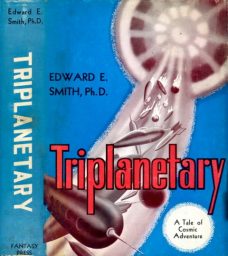 Triplanetary, a book I had started but never finished in my youth. I quite enjoyed it the second time, through, and there was a positive response to that review (you can find it here). Many people also chimed in with their opinions of Smith’s famous Lensman series. So, we decided that over the coming months, reviews of the rest of the Lensman series will be interspersed between my other columns.
Triplanetary, a book I had started but never finished in my youth. I quite enjoyed it the second time, through, and there was a positive response to that review (you can find it here). Many people also chimed in with their opinions of Smith’s famous Lensman series. So, we decided that over the coming months, reviews of the rest of the Lensman series will be interspersed between my other columns.
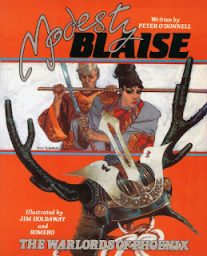 Comics (Vintage Pop Fictions): Warlords of Phoenix collects three Modesty Blaise comic-strip stories from the tail end of the 60s. If you’ve only read the Modesty Blaise novels (which are wonderful) I urge you to check out her comic-strip adventures which are also excellent.
Comics (Vintage Pop Fictions): Warlords of Phoenix collects three Modesty Blaise comic-strip stories from the tail end of the 60s. If you’ve only read the Modesty Blaise novels (which are wonderful) I urge you to check out her comic-strip adventures which are also excellent.
Pulp (Rough Edges): Instead of one of the Westerns for which Max Brand (Frederick Faust) is most famous, I’m writing about one of Faust’s espionage novels. THE PHANTOM SPY is set in Europe in the mid-Thirties, the era during which it was written. This isn’t a Ruritanian, Graustarkian, comic opera Europe, either. It’s the real thing, with the grim threat of Hitler’s growing power in Germany looming over everything.
(Frederick Faust) is most famous, I’m writing about one of Faust’s espionage novels. THE PHANTOM SPY is set in Europe in the mid-Thirties, the era during which it was written. This isn’t a Ruritanian, Graustarkian, comic opera Europe, either. It’s the real thing, with the grim threat of Hitler’s growing power in Germany looming over everything.
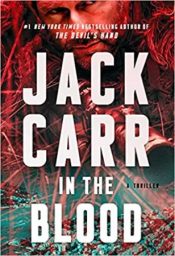 Spy Fiction (The Real Book Spy): Without further ado, here are our picks for the Top 10 Must-Read Spy Thrillers Set in the Middle East.
Spy Fiction (The Real Book Spy): Without further ado, here are our picks for the Top 10 Must-Read Spy Thrillers Set in the Middle East.
West (Marzaat): Our story (if not DeArment’s book) opens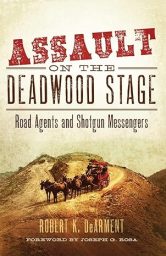 on March 25, 1877 with a shotgun blast to the chest of Deadwood stage driver Johnny Slaughter delivered, witnesses said, almost simultaneous with the command to halt the stage. The shot was fired by “Reddy” McKinnie, a trigger-happy member of the Saul Bass gang.
on March 25, 1877 with a shotgun blast to the chest of Deadwood stage driver Johnny Slaughter delivered, witnesses said, almost simultaneous with the command to halt the stage. The shot was fired by “Reddy” McKinnie, a trigger-happy member of the Saul Bass gang.
Please give us your valuable comment